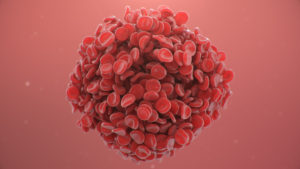 Have you ever heard of VTE? What about venous thromboembolism?
Have you ever heard of VTE? What about venous thromboembolism?
There’s a good chance you haven’t. And you’re not alone. Most have no idea what it is. But according to data from the American Heart Association, it may have affected over 1 million Americans last year.
Advertisement
And the numbers have been on a steady climb upwards.
Learning the symptoms of this condition is essential because it can be fatal. Even worse, you might be genetically predisposed to it.
VTE is an issue that plays out in your veins. It includes two types of blood clots: deep vein thrombosis, also called DVT, which generally occurs in the legs. The other is a pulmonary embolism or PE. A PE is when a DVT breaks free and gets stuck in the lungs.
Last year, the AHA estimates there were about 370,000 PE and 857,000 DVT events.
Although some are genetically predisposed to this condition, it is closely associated with lifestyle. In fact, new research shows that lifestyle interventions can lead to major risk reductions in people who have uncontrollable risk factors.
What can you do to lower the risk for VTE? Boost your activity level and lose some weight.
The study suggested that one-to-three bouts of sweat-inducing exercise each week may reduce blood clots’ risk by 28%. Further, if body mass index (BMI) can get below 25, compared to 30 (obese), the risk is 45% lower.
Advertisement
That’s great news if you’re worried about deep vein thrombosis, blood clots, and VTE’s very real dangers.
Exercise and lowering body fat can help keep your veins healthy by encouraging better circulation. Relieving pressure on your veins and encouraging blood flow can help them stay dilated and malleable.
It’s also important to recognize the symptoms of VTE. They include:
- Swelling
- Pain/tenderness on the legs
- Red streaks/discoloration
- Warm skin
- Shortness of breath
- Rapid breathing/heart rate
- Chest pain
